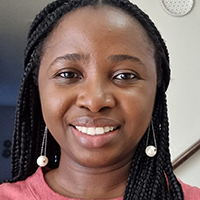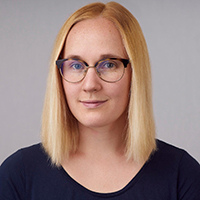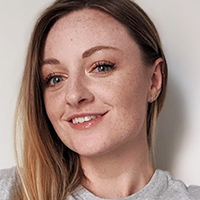
Health Methodological Special Interest Group
The Health Methodological Special Interest Group is a vibrant space dedicated to navigating the complexities of conducting interdisciplinary health research. Our MSIG engages experts in sharing their untold stories in tackling tough challenges in the field, forging collaborations across disciplines, and making crucial decisions in designing and adapting methodologies.
We have a focus on learning and collaboration allowing members to exchange knowledge and seek advice for navigating their research journeys. Our events, panel discussions and resources are free and open to anyone who is interested and passionate about these topics.
Aims
Our MSIG aims to break down barriers with the way social scientists engage with health research. By bringing together researchers from diverse backgrounds, we strive to create a space where the "messy" bits of research are celebrated, and valuable lessons are shared on research and methodological adaptation, innovation and collaboration.
Activities
Our bi-monthly online panel discussions are more than just talks – they're dynamic forums for dialogue, networking, and skill-building. Whether you're an early-career researcher or a seasoned professional, our sessions offer valuable insights and opportunities to connect with like-minded individuals.
Through our activities, we strive to facilitate knowledge exchange, foster collaboration, enhance research capacity, and promote innovative methodologies within our group. We have more upcoming events coming up.
Previous events
Navigating the challenges of meaningful patient and public involvement in health research
On 25 November 2024, expert panellists Amanda Stranks, Dan Bleksley and Nicole Thomas shared their experiences and wisdom on navigating the challenges of meaningful patient and public involvement in health research.
Navigating the Ethics of Technology in Health Research
On 18 March 2024, Ulla Petti joined expert panellists Dr Jee Young Kim, Professor Mike Trenell, and Dr Richard Milne, in sharing their experiences on navigating the ethics of technology in health research with a particular focus on the ethical considerations of using technology and AI within health research.
The panel session focussed on the main challenges that the panellists have experienced in their work, such as those that arise while working in highly multidisciplinary settings. We talked about the need for including researchers from clinical, technical, social sciences, and ethics background in the discussions around using AI and technology in health domain, and creating spaces for the exchanges of knowledge and experience to happen. The panellists also shared their experiences in aiming to develop fair, robust, and trustworthy models, including diverse groups and being applicable to wider population.
Navigating the Challenges of Using Participatory Methods in Health Research
On 25 April 2024, Dr Ayomide Oluseye joined expert panellists Professor Jelke Boesten, Dr Victoria Newton and Professor Rebecca Jones to explore methodological challenges, reflections and lessons learned when designing and implementing creative and participatory research methods in health research.
The panel session focused on some of the creative research work that the panellists were working on. We talked about managing stakeholder conflict, maintaining participant engagement, working with peer researchers and creatively disseminating research findings in a way that optimises community impact. The session also touched on issues relating to ethics, funding, and mapping impact.
Organisers

Dr Ayomide Oluseye
Dr Ayomide Oluseye is a lecturer in Public Health at The Open University. Her research focus revolves around the intersections of gender, stigma, reproductive health, and wellbeing, particularly among women and young people. Previously, she led an ESRC-funded project addressing health and learning inclusion for pregnant teenagers in rural Nigeria and aims to expand her work on pregnancy and motherhood studies throughout West Africa. She has collaborated with international organizations like the UN and WHO to critically evaluate government and donor-funded interventions from a gendered lens. Her research portfolio spans Africa, Asia, and Europe, showcasing a commitment to global health improvement.

Ulla Petti
Ulla Petti is a final year PhD student at the Language Technology Lab at the University of Cambridge, supervised by professor Anna Korhonen and doctor Simon Baker. Her PhD research focuses on the automatic detection of the signs of Alzheimer’s disease from language and speech. Ulla is mainly interested in the ethical considerations that arise in the process of AI- and speech-based disease detection.

Courtney Neal
Courtney Neal is a final year PhD student in the Population Health Sciences Institute at Newcastle University, supervised by an interdisciplinary team. Her PhD research focuses on how the experience of hunger may be linked to negative health outcomes, particularly in people experiencing food insecurity. Courtney’s research interests are driven by the need to understand the mechanisms underpinning socioeconomic inequalities in health outcomes, particularly obesity risk. Using an interdisciplinary biopsychosocial approach, she aims to gather the knowledge required to improve existing policies, interventions, and treatments that have had limited success in reversing current population-level trends in weight status.
Contact the MSIG
For any inquiries, please do not hesitate to contact Ulla Petti (ump20@cam.ac.uk) or Dr Ayomide Oluseye (ayomide.oluseye1@open.ac.uk).

